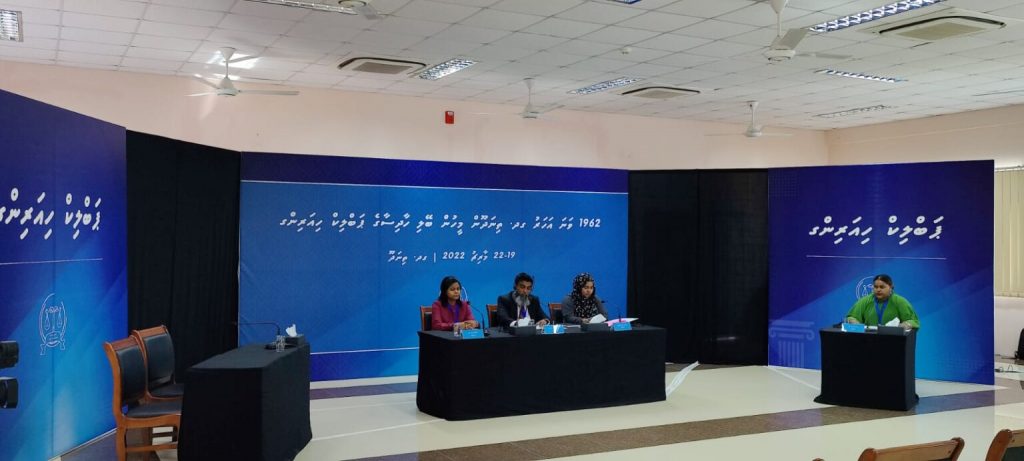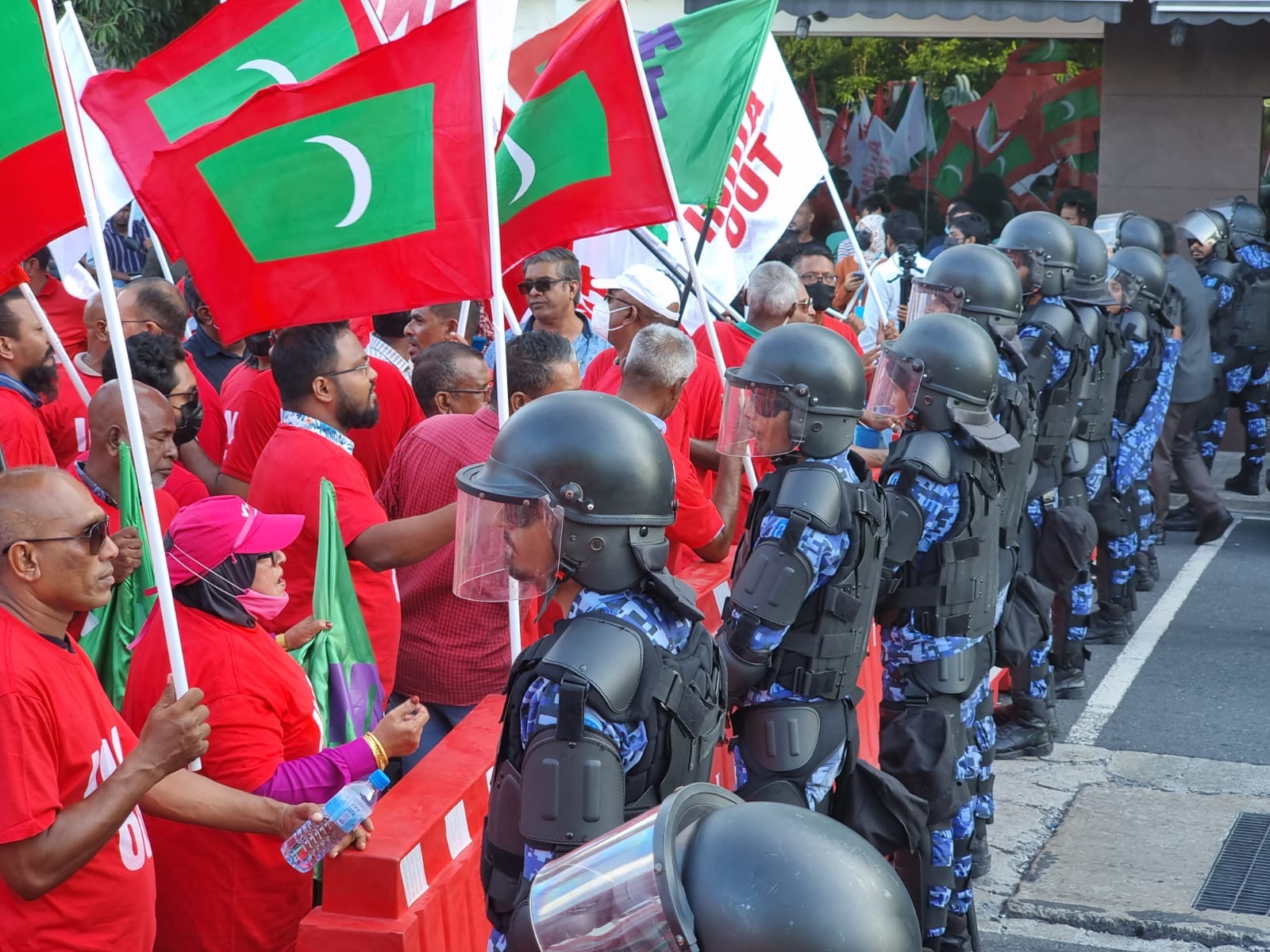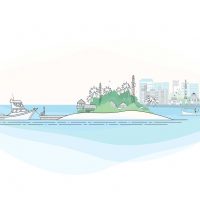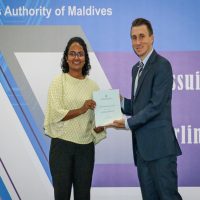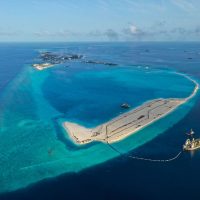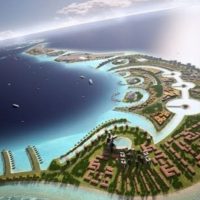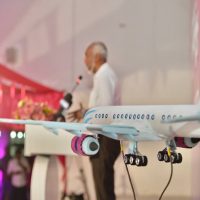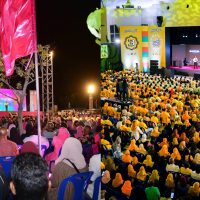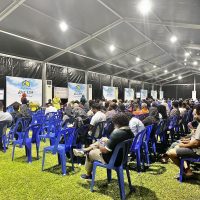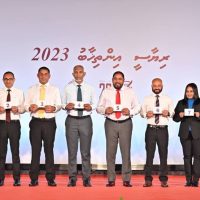Two lawmakers and Malé City’s deputy mayor were among 16 people arrested from the opposition’s ‘India Out’ protest in Malé, according to the Progressive Party of Maldives-People’s National Congress alliance, which also accused police of pepper-spraying and obstructing protesters from entering the Carnival grounds.
On Thursday, the police warned that the planned mass demonstration would not be allowed to proceed, claiming that the opposition was planning to bring supporters from other islands, disrupt traffic in the capital and involve criminal gangs. Before the gathering was scheduled to begin, police barricaded a section of Malé’s outer ring road where the PPM office is located.
The PPM accused the government of violating the constitutional right to freedom of assembly on the orders of the Indian High Commission.
Reiterating allegations of India building a military presence, former president Abdulla Yameen – who did not join the protest – told Reuters in a rare interview that the Maldives should remain a “demilitarized zone.”
Street protests were effectively banned when the PPM was in power. Controversial legal changes restricted gatherings to areas designated by the home ministry, which picked the carnival area in Malé’s eastern waterfront. Despite repealing other draconian laws passed by the former PPM-majority parliament, the ruling party’s supermajority in parliament has kept the protest restrictions in place.
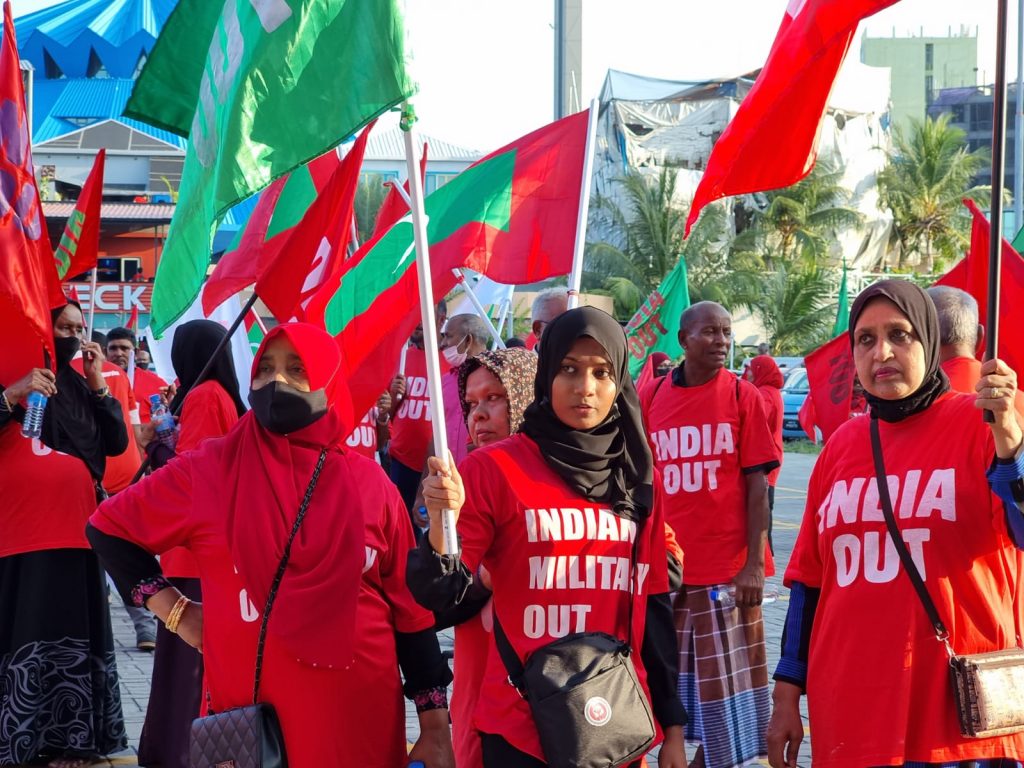
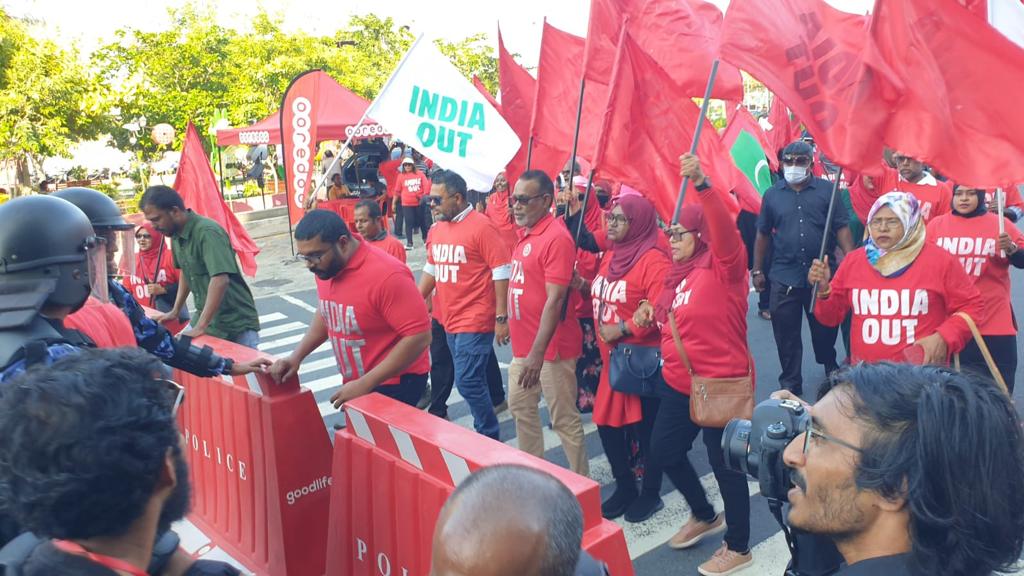
Addressing the people of Fuvahmulah, President Ibrahim Mohamed Solih pledged to expand the city’s airport, build 400 housing units, expand road construction by 10km, and offer speciality services in a new 50-bed hospital under development in the southern atoll-island.
Accompanied by the first lady, the president departed on a four-day trip to the southernmost atolls on Friday afternoon.
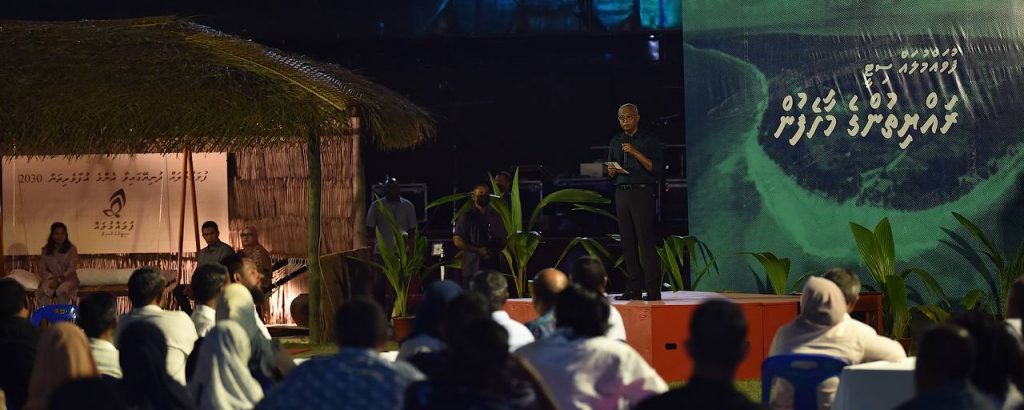
The police seized about 42kgs of heroin hidden under a false flooring in a house in Malé and arrested two suspects. On Sunday night, police stopped a pickup on Sosun Magu and seized 17kg of drugs. Four men were arrested.
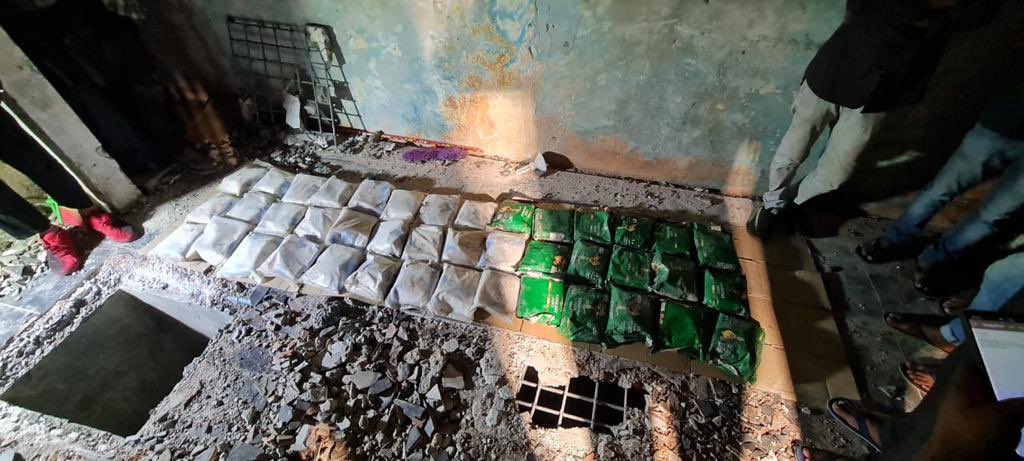
The Malé City Council removed more than 1,360 pallets kept illegally on the streets to block parking spots.
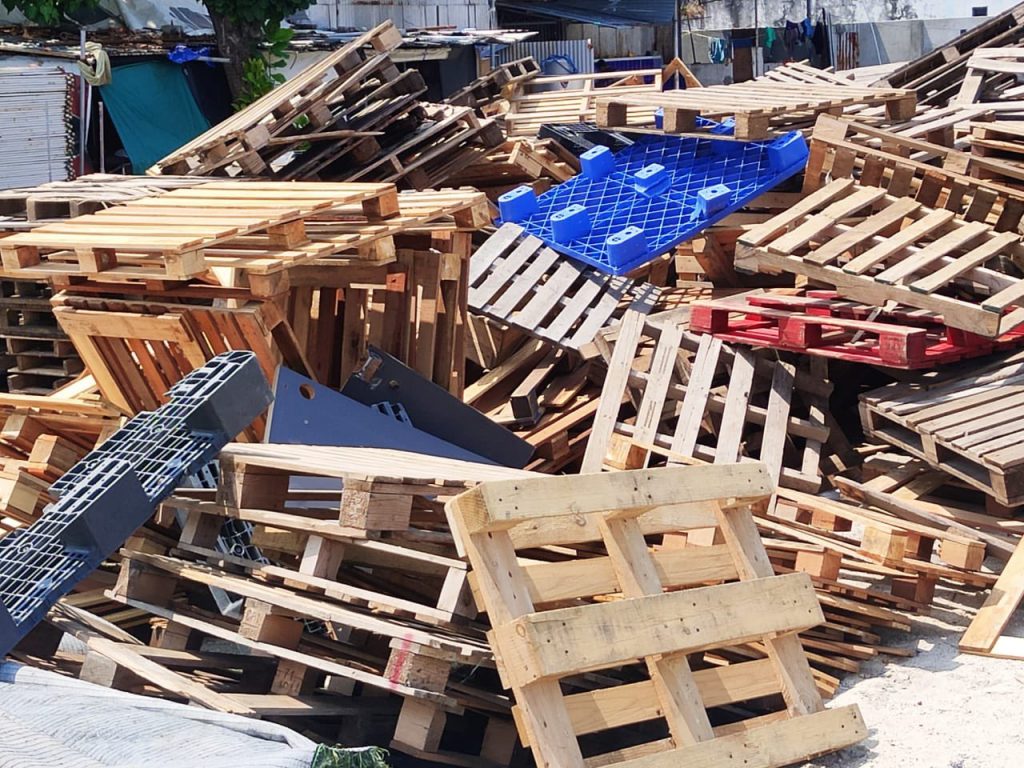
The Maldives Bar Council plans to charge MVR10,000 (US$648) as a fee for the country’s first bar exam, the media reported, prompting criticism from new graduates and lawyers practising under a temporary license. The bar council’s president informed the legal community that it would cost MVR20,000 per person to conduct the exam, expected to be held in May or June.
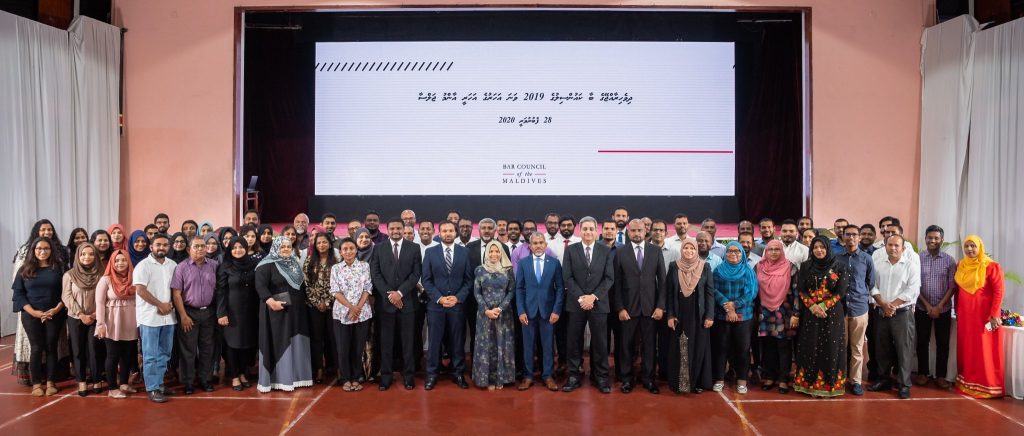
A man was found guilty of aiding and abetting the murder of an Addu businessman in March 2016. The defendant, Mohamed Shifaz, who took the victim to the taro field where he was strangled to death, was set free as he had already served the prison sentence handed down in the verdict.
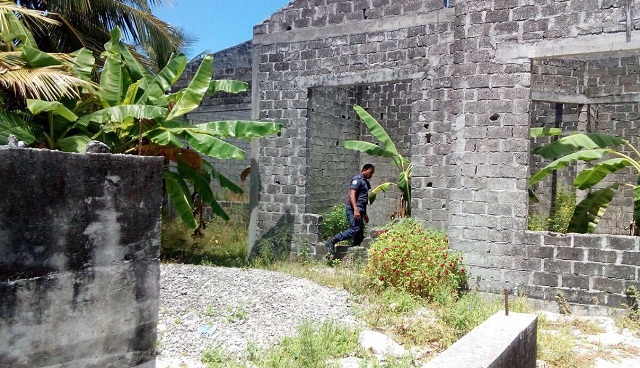
Former communications minister Mohamed Maleeh Jamal denied illegally spending MVR795,000 (US$51,556) to renovate his office as flagged in the ministry’s audit report for 2019. The “old warehouse” was renovated in a manner that saved money from the budget, he contended.

American billionaire Ted Waitt and members of his Waitt Institute met Speaker Mohamed Nasheed and lawmakers to discuss a marine research and ocean conservation partnership with the Maldives government.
The Waitt Foundation is assisting the ‘Noo Raajje’ programme launched in December 2020 as a partnership between the government and the Blue Prosperity Foundation.
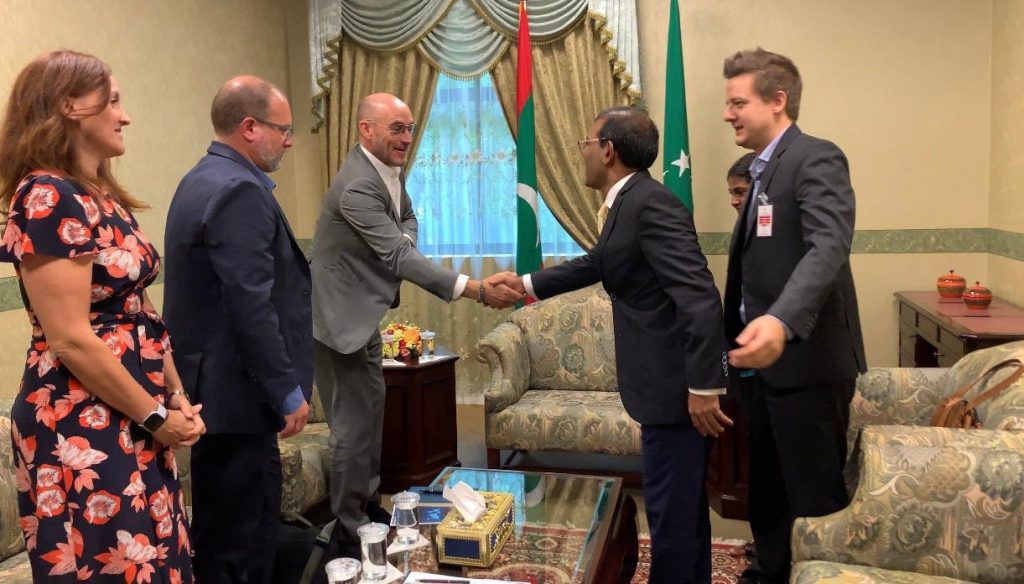
A young woman was found dead in a guesthouse on Gaafaru island in Kaafu atoll. She was reportedly found in the toilet with injuries on her neck. Guesthouse staff went into the room with police when she did not come for the check out time. A knife was on the toilet floor but there were no signs of forced entry.
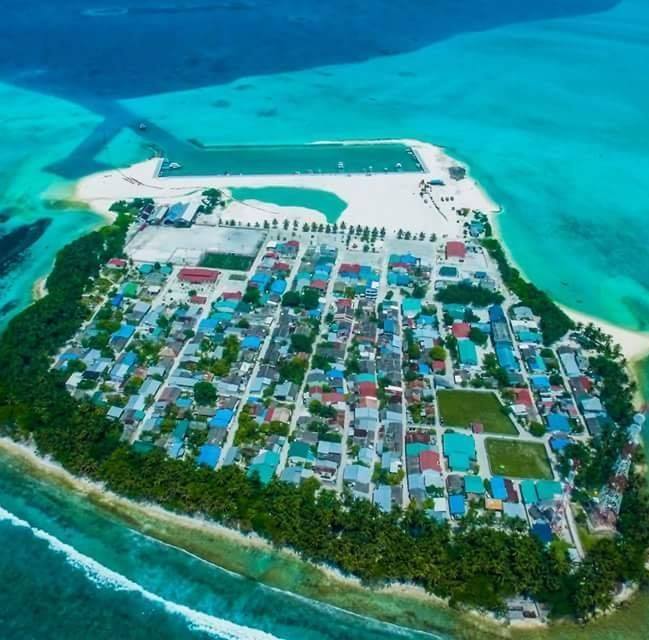
Projects to build 5,000 flats in Hulhumalé awarded to Indian companies will not be completed by the end of the current administration’s five-year term in November 2023, the housing ministry informed parliament. Financing has not been secured either to reclaim land in the Giraavaru lagoon to hand out 2,000 plots to Malé residents as pledged by the president.
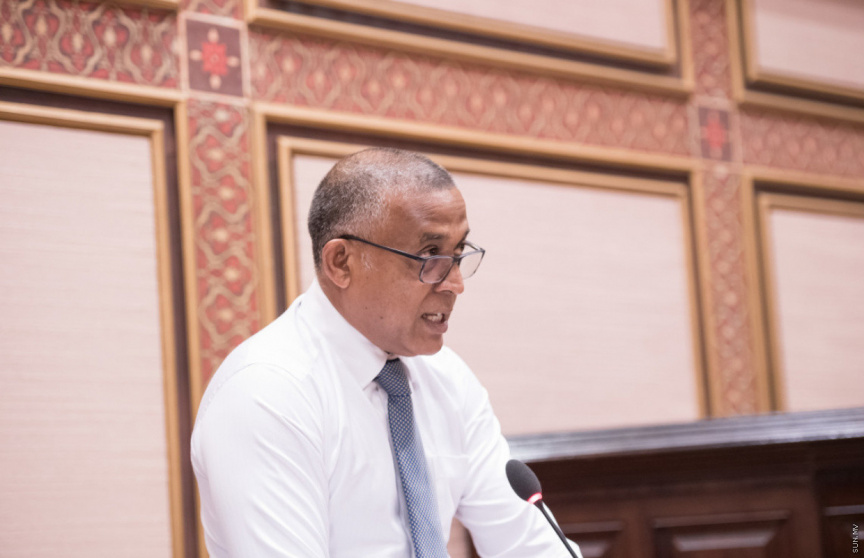
The High Court overruled the criminal court’s dismissal of bribery charges against Youth and Sports Minister Ahmed Mahloof. After preliminary hearings, the lower court ruled on March 1 that there was insufficient evidence to proceed to trial. But the High Court found that the criminal court had not considered the prosecution’s evidence and ordered a trial.
The former lawmaker was accused of accepting a US$33,000 bribe to vote for the previous government’s special economic zones legislation.
The government has been under fire over Mahloof remaining in the cabinet despite a ‘zero tolerance’ policy to fire political appointees charged with corruption.
The charge stemmed from a joint investigation by the police and presidential asset recovery commission into the theft of US$90 million during the previous administration. Mahloof denied the allegations and claimed he was a “sacrificial lamb” for the corruption scandal.
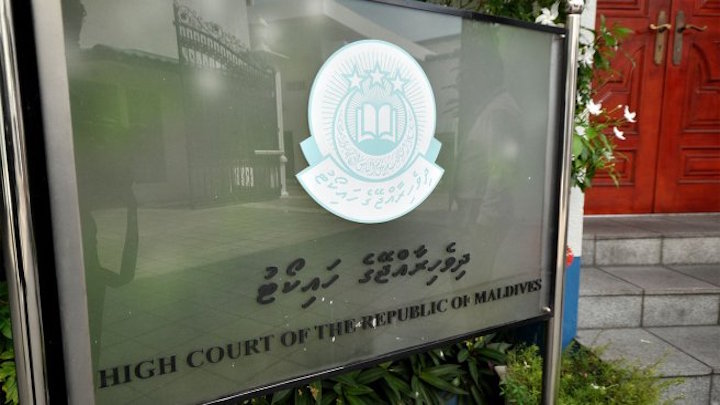
Vice President Faisal Naseem launched a screen reading software in Dhivehi language for Persons with Disabilities.
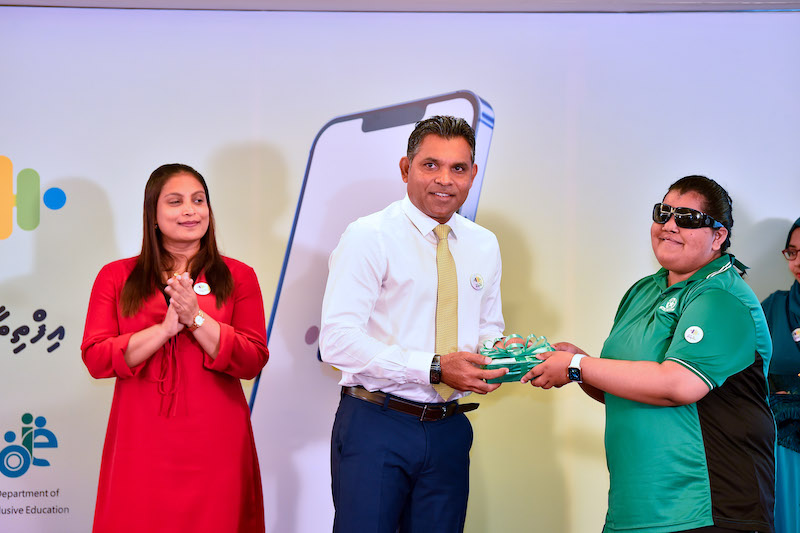
Immigration issued a seven-day notice for 45 alleged expatriate immigration offenders to appear at its Expatriate Monitoring and Repatriation Division.
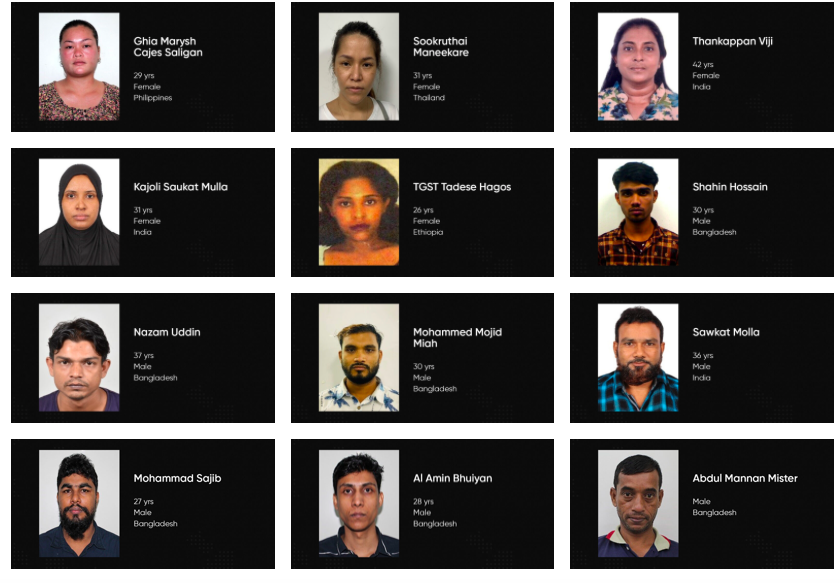
The Ombudsperson’s Office for Transitional Justice commenced public hearings on the forced eviction of residents of Gaaf Dhaal Thinadhoo in 1962. It was the first hearing conducted since the OTJ was established under landmark transitional justice legislation ratified in December 2020 to investigate abuses of power and human rights violations by the state between 1 January 1953 to 17 November 2018.
During hearings on the southern island over four days, elderly Thinadhoo residents recounted how soldiers led by former president Ibrahim Nasir set homes on fire and shot live bullets. Many people died as they tried to swim off the island, including women and children. Hundreds were tortured and jailed or banished. After suffering in exile across the country, residents were only allowed to return in August 1966.
The brutal crackdown and depopulation came after the three southernmost atolls seceded and established a separate state called the United Suvadive Republic.
